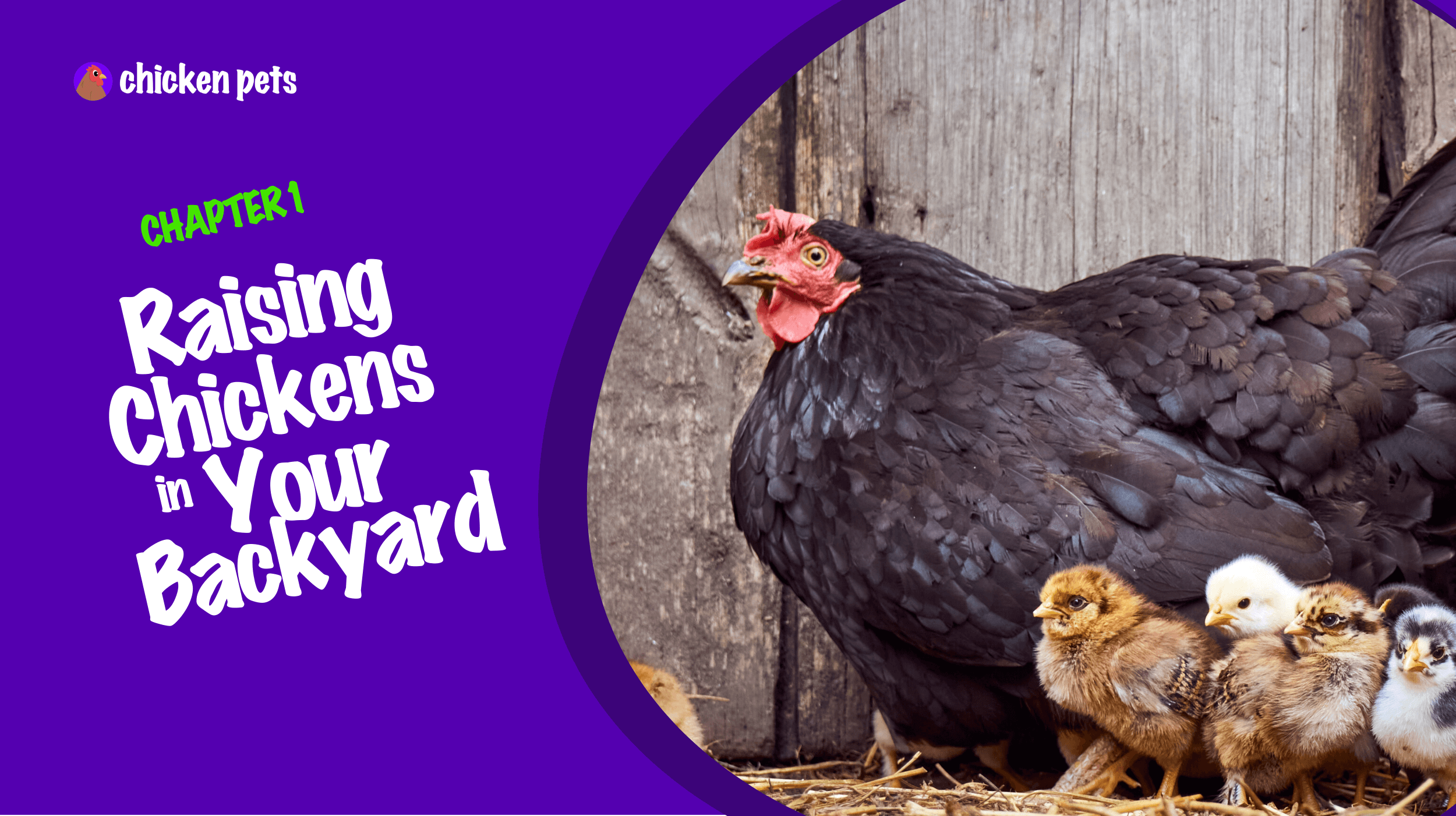Are you ready to embark on a feathery adventure? Raising backyard chickens can be one of the most entertaining and rewarding experiences, but weighing the pros and cons before committing is important.
Don’t worry, we’ve got you covered! In this chapter, we’ll give you the inside scoop on why raising chickens is all the rage, the potential pitfalls to watch out for, and how to determine if it’s legal in your neck of the woods. Let’s get clucking!
The Pros of Raising Chickens.
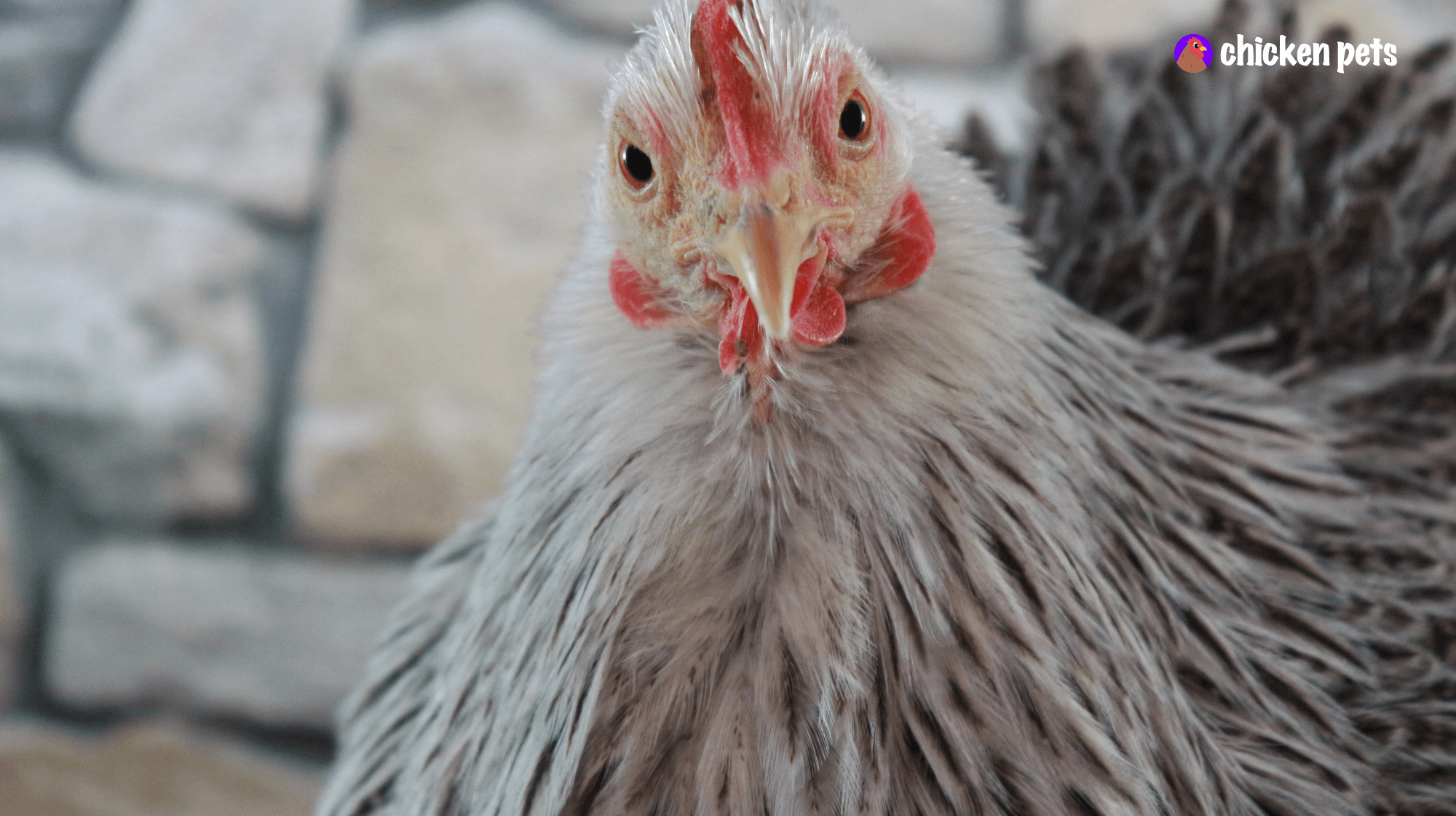
Ready to crack open the world of backyard chicken raising? You’ve come to the right place! Get ready to hear all the egg-citing reasons why you should join the flock and raise some chickens. From fresh eggs for breakfast to a never-ending supply of natural fertilizer to having some feathered friends as companion animals, the benefits of raising chickens are endless! And don’t even get us started on the economic benefits. So buckle up and get ready for a wild ride because the pros of raising chickens are about to hatch!
Chickens are the New Cats, and We’re Here to Tell You Why!
Raising backyard chickens has become increasingly popular recently, and for good reason! These feathered friends offer many benefits, from providing fresh eggs to acting as natural pest control. Raising chickens might be the perfect solution to improve your diet, reduce your environmental impact, or add fun to your life.
Fresh Eggs: Say Goodbye to Store-Bought Eggs, Hello to Farm-Fresh Deliciousness!
Who doesn’t love fresh eggs? You’ll never have to worry about running out of eggs or buying several weeks-old eggs with backyard chickens. Fresh eggs taste better, contain more nutrients, and are more satisfying. And with a steady supply, you can enjoy scrambled eggs, omelets, and other egg-based dishes all year round!
Fertilizer: Don’t Just Plant a Garden, Plant a “Cluck-en” Garden!
Backyard chickens provide a natural fertilizer for your garden, which can be a massive advantage for the health and growth of your plants. Chickens are natural scavengers who happily scratch around your garden looking for insects, weed seeds, and other goodies. As they do, they’ll drop droppings rich in nitrogen, phosphorus, and potassium, the essential elements that plants need to grow.
Pest Control: Pest Problems? No More, Let the Chickens do the Chasing!
Chickens are excellent at controlling pests, especially in the garden. They’ll eat all kinds of insects, from slugs to grubs, and they’ll even dig up and eat weed seeds. You might be amazed at how much your backyard chickens can help control your garden’s pests.
Meat: No More Dry Chicken, Raise Your Own Juicy Birds, and Thank Us Later!
Raising chickens for meat might be a good option if you want to reduce your carbon footprint and eat more sustainable meat. Chicken meat is delicious, nutritious, and much better for the environment than beef or pork. With backyard chickens, you’ll have a source of fresh, hormone-free meat that’s never been transported long distances or subjected to antibiotics or other chemicals.
Companion Animals: Cluck Therapy, Better Than Any Pill You’ll Ever Take!
Backyard chickens can make excellent companion animals, especially if you live on a farm or in a rural area. They’re social creatures that enjoy the company of humans, and they’re surprisingly affectionate and intelligent. Watching your backyard chickens can be a fun and engaging hobby for the whole family, and it might even improve your mental health!
Economic Benefits: Save Money on Groceries, Raise Your Own Chickens, and Live Like a King!
Raising backyard chickens can be economically beneficial, especially if you’re looking to save money on food. Fresh eggs are often more expensive than store-bought eggs, but with backyard chickens, you’ll have a steady supply of fresh eggs that you don’t have to pay for. Additionally, you can save money on fertilizer, pest control, and other gardening costs, and you might even be able to sell excess eggs or meat to your neighbors.
Fun and Engaging Hobby for Your Family: Get Your Whole Family Hatching a Good Time!
Raising backyard chickens can be a fun and engaging hobby for the whole family. Whether you’re teaching your children about where food comes from, enjoying the companionship of your feathered friends, or simply observing their behavior and habits, raising backyard chickens is a beautiful experience that can bring your family closer together.
The Cons of Raising Chickens.
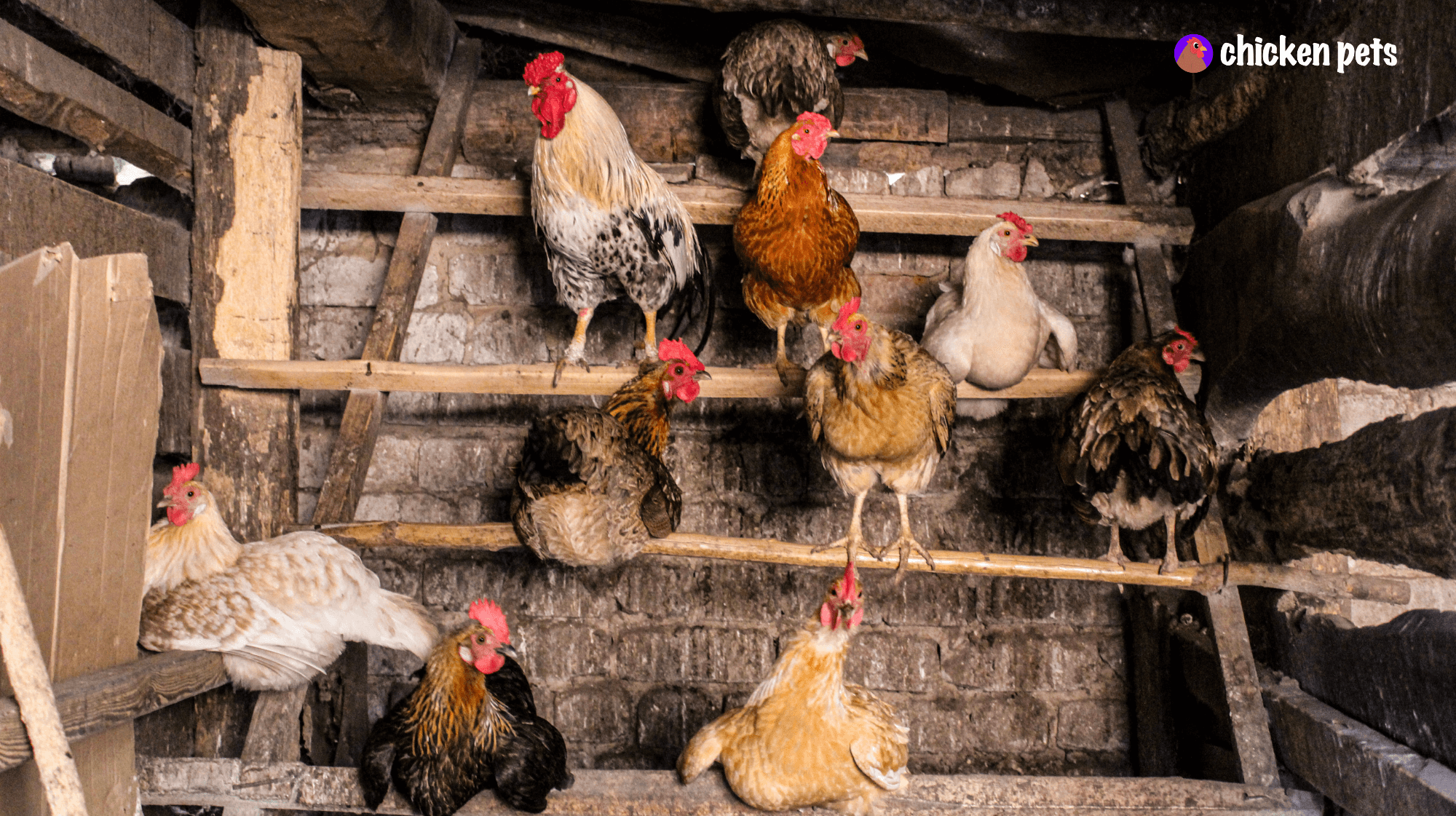
Buckle up, chicken enthusiasts, because it’s not all sunshine and eggs when raising these feathered friends. Yes, fresh eggs and adorable pets, but there are also some drawbacks to consider before you jump on the chicken bandwagon.
While we list the following as ‘cons,’ it’s likely that, if you enjoy your chickens, these cons turn into pros in the long run – it’s all about perspective! So hold onto your seat because you may be taking this ride for the long haul—the joys of chicken-rearing can outweigh the cons if you’re willing to work for it!
Time and Effort: Chicken Care Takes Time and Energy
Raising chickens takes a lot of time and effort, from feeding and watering to cleaning and caring for their health. Don’t forget about entertainment, either. Chickens love interacting with their owners, so be prepared to spend quality time with them. While this could be part of the Pro’s section, we left it here to ensure you know you’ll have to put the time in.
Space: Chickens Need Room to Roam
Chickens need space to roam, including a coop and a run. While they can live in tight quarters in pretty miserable conditions, giving them plenty of space keeps the flock happy and the eggs bountiful. So, unless you live on a farm, ensure you have enough room for a coop and a run before you start.
Noise: Wake Up and Smell the Roosters
Roosters can be pretty loud, and hens can also be equally noisy after laying eggs, and they love to let the whole neighborhood know when they’ve laid an egg. So, if you’re a light sleeper or live in a close-knit community, you may want to reconsider raising chickens.
Smell: Chicken Shit, the Gift That Keeps on Giving
Chickens shit… a lot… and everywhere. You will step into it at some point, and it’s just a fact of life as a chicken keeper. The manure and dirty coops can also be a source of unpleasant odors. So, be prepared to have a strong stomach and a stronger commitment to cleaning.
Health Concerns: Keeping Your Chickens Healthy, and Yourself
Raising chickens has some health concerns, including zoonotic diseases and parasite transmission. It’s essential to take precautions to keep your chickens and yourself healthy.
Cost: The Price of Raising Chickens
Many people think raising chickens is inexpensive, but that’s only sometimes the case. Store-bought coops can be anywhere from a few hundred dollars to thousands. And remember the additional costs, like feed, treats, vet bills, medications, cleaning products, and supplies. And let’s not forget about the time commitment.
Here’s a breakdown of the estimated startup costs and average monthly costs for raising a flock of 6 backyard chickens:
Startup Costs
| Cost Type | Cost Details |
| Chicken coop and run | $200 to $1000+ |
| Feeder and waterer | $30 to $60+ |
| Bedding | $10 to $40+ |
| Feed | $50 to $100 (one bag can last weeks) |
| Six chickens | $10 to $30+ per chicken |
| Total startup costs | $350 to $1380+ |
Average monthly Costs
| Cost Type | Cost Details |
| Feed | $15 to $30/mo |
| Bedding | $10 to $20/mo |
| Miscellaneous items | $10 to $50/mo |
| Total monthly costs | $35 to $100/mo |
Raising chickens can be a wild ride when it comes to expenses! It all depends on your personal style, the neighborhood you call home, the local feed prices, and what kind of coop you’re dreaming up. If you’re feeling frugal, you can always use the MacGyver method, cobbling together a coop from wood scraps, DIYing your own feeder and waterer, and using lawn clippings for bedding.
But once you start getting fancy with store-bought supplies from Walmart, Amazon, or Tractor Supply, the costs can soar faster than a rooster on steroids.
Fear not, my feathered friend! There are ways to keep your wallet clucking with joy. For example, check out local farms for better deals on feed and supplies. We’ll talk more about that later in Chapter 3.
Garden and Yard Destroyers
While chickens can help your garden, they are often just as destructive. They love to eat the same fruits and vegetables that humans eat, and they love to scratch and dig in the grass. They also love dust baths in the dirt, leaving your garden like a battlefield. So, before turning your backyard into a chicken playground, ensure you’re ready for the consequences.
Predators: The Chicken’s Not-So-Friendly Neighborhood Watch
Even if you keep your chickens in a secure pen, they can still be at risk from wild animals like foxes, coyotes, raccoons, hawks, and owls looking for an easy meal. While chicken coops and runs may offer some protection, they may only sometimes be enough to protect your birds fully. With backyard predators on the prowl, you might start to feel like you live in the chicken equivalent of Jurassic Park. But hey, at least you won’t have to worry about T-Rex attacks. Just be prepared to protect your feathered friends.
Chicken Keeping: Do the pros out-weight the cons?
Well, folks, there you have it! The cons of raising chickens. While raising chickens can bring a lot of joy and fresh eggs to your life, it’s not without its challenges. Nothing worth having comes easy; if you’re up for the challenge, it may be worth it!
But before you jump in, you have to ask yourself: “Can I raise chickens where I live? Is it legal?” It’s essential to check your local laws and regulations before setting up shop, or your roosters may end up in jail instead of your coop! So stay tuned as we dive into the world of chicken legality next.
Can I Raise Chickens Where I Live? Is it Legal?
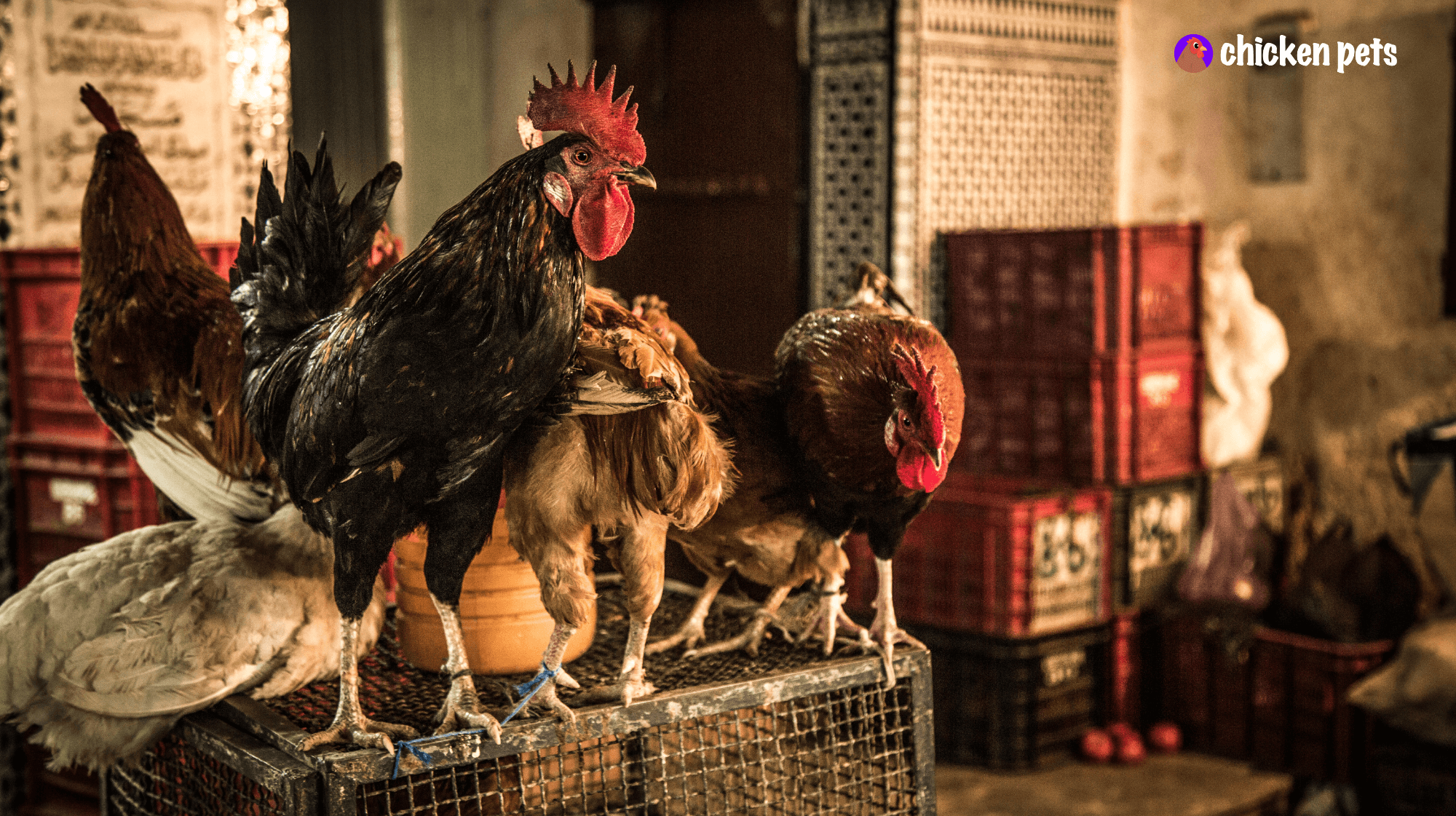
Before you get too excited about starting your backyard chicken flock, you must check if raising chickens is legal where you live. Let’s dive into the laws and regulations surrounding raising chickens.
Zoning Laws: What’s Allowed in Your Neighborhood
When raising chickens, local zoning laws can play a significant role in determining whether or not you can have a flock in your backyard. Depending on where you live, there may be specific laws and regulations regarding the number of chickens you can have, the size of your coop and run, and even the type of fencing you need. So, it’s always best to check with your local government first.
HOA Rules: Homeowner Associations and Their Say
If you live in a neighborhood governed by a homeowners’ association (HOA), raising chickens may be restricted. Some HOAs have strict rules about the types of livestock that can be kept on the property, and chickens may not be allowed. It’s always a good idea to check with your HOA before bringing home a flock of chickens.
State and Local Laws: Laws Vary from Place to Place
State and local laws can also play a role in determining whether or not you can raise chickens in your backyard. Some states have laws that specifically allow for backyard chicken keeping, while others have laws that prohibit it altogether. So, checking with your state or local government before starting a backyard flock is essential.
Permits: Obtaining Permission to Raise Chickens
Sometimes, you may need a permit to raise chickens in your backyard. The process for getting a permit varies depending on where you live but typically involves the following:
- Submitting an application to your local government.
- Providing information about your property and the number of chickens you want to keep.
- Paying a fee.
So, it’s always best to check with your local government to see if you need a permit and the process for obtaining one.
Number of Chickens Allowed: How Many Cluckers Can I Have?
How many chickens can you have in your backyard? It depends! Different cities and states may have different rules and regulations, so it’s essential to check before you start your chicken empire. Some areas may restrict the number of chickens you can have, while others may have no limits at all. Check the specific laws in your area to avoid any unwanted run-ins with the law.
Chicken Ordinances: Clucking Around the Law
Each city and county may have its own set of chicken ordinances, which can include restrictions on breeds, noise levels, and fencing requirements. For example, some areas may only allow certain breeds of chickens considered quieter, while others may have regulations on the height and type of fencing you can use for your chicken run. Make sure to familiarize yourself with the chicken ordinances in your area to ensure you’re following the rules.
Roosters: Crowing in the City
Roosters are an essential part of any chicken flock, but they can also be the source of noise complaints. Some areas may have laws and regulations regarding roosters, which may be restricted due to noise concerns. If you’re considering adding a rooster to your flock, check the specific laws in your area. You don’t want to be in hot water because of a noisy rooster!
Urban or Suburban Chickens: Chickens in the Concrete Jungle
If you’re raising chickens in an urban or suburban area, you’ll want to pay extra attention to the laws and regulations in your area. Some cities may have specific rules regarding urban chickens, such as restrictions on the coop size or the number of chickens allowed. Check the laws in your area so you can be a responsible and law-abiding urban chicken farmer.
Livestock Laws: Including Our Feathered Friends
In addition to chicken-specific laws, there may also be broader laws and regulations regarding livestock in your area. These laws can cover things like fencing requirements, animal cruelty, and the transportation of livestock. Make sure to familiarize yourself with these laws to ensure you follow the rules and keep your chickens safe and happy.
Nuisance Issues: Keeping the Peace with Chickens
Raising chickens can be a joy, but it’s essential to ensure you’re not causing a nuisance to your neighbors. Some areas may have laws regarding nuisance issues, such as noise, odor, or sanitation concerns. Before starting your chicken adventure, ensure you understand your area’s laws and take steps to minimize any potential issues.
Feathers, Laws, and Research
The laws and regulations regarding chickens can change over time, so it’s essential to stay up to date. Make sure to research and understand the laws and regulations in your area and any changes that may occur. With a little bit of research and preparation, you can ensure you’re raising chickens legally and responsibly. You can usually find this information by doing a Google search for something like “chicken laws in <enter your city or town name>”. If Google can’t help you, then start making some calls to your local government offices.
So there you have it! Keep these legal considerations in mind as you plan your chicken-raising adventure. Whether in the city, the suburbs, or the countryside, you can raise chickens confidently, knowing you’re following the rules and keeping your feathered friends happy and safe.
The Basics of Backyard Chicken Care
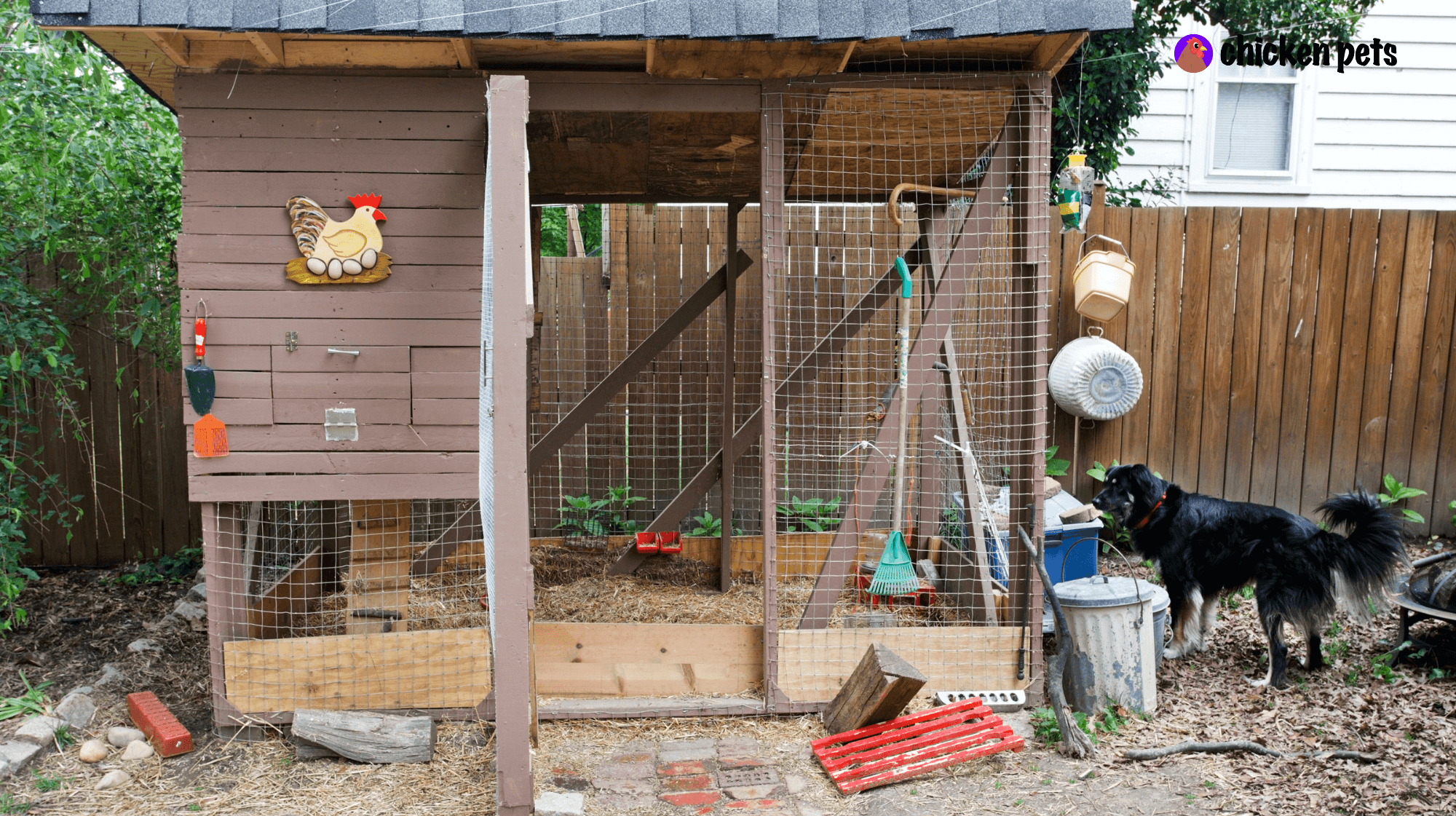
We’ll get into these topics later on. We decided to put them in the first chapter because they are essentials, and it’s good to know these upfront before you go and get your chickens.
Your Chickens Need Space!
Chickens require a certain amount of space to live comfortably and healthily. Providing enough space for your chickens to move around, stretch their wings, and engage in natural behaviors such as foraging and dust bathing is essential. Crowded conditions can lead to stress and health problems, so providing sufficient space for your chickens is essential.
Housing is Absolutely Essential
Chickens need a safe and comfortable place to live, known as a coop or chicken house. The coop should be large enough to accommodate the number of chickens you have, and it should be well-ventilated and insulated.
Feeding: Your Chickens Will Eat a Lot
Chickens require a balanced diet to stay healthy and produce eggs. They need a combination of protein, carbohydrates, fat, vitamins, and minerals. Chickens can eat various foods, including commercial chicken feed, kitchen scraps, and insects.
Watering: Hydration for Life
Chickens need access to clean and fresh water. They drink a lot of water, especially in hot weather, and it is essential to provide enough water for the size and number of chickens you have.
Health and Hygiene Keeps Your Birds Alive
Chickens are susceptible to various health problems, including parasites, infections, and injuries. Regularly checking your chickens’ health and providing preventive care, such as vaccinations and parasite control, is essential. The coop and run should also be kept clean and sanitized.
Pondering Perks and Pitfalls: The Finer Details of Chicken Keeping

While raising chickens is a fun and rewarding experience, there are a few other things you may have yet to think about. From finding a trusty chicken sitter for your feathered friends while you’re on vacation to ensuring your kids are entirely on board with the new feathered addition to your family to providing your neighbors are clucking with joy about your new hobby, we’ve got you covered! Read on for a few feathers in the cap of chicken care that you will want to take advantage of.
Taking Vacations and Finding a Chicken Sitter
So you want to raise some chickens, eh? Great! But have you considered what you’ll do when you want to vacation? Or when life calls, and you must be away from home for a few days? That’s where the chicken sitter comes in! You’ll need to find someone who loves your birds as much as you do and is willing to care for them in your absence. Please don’t wait until the last minute to find your chicken sitter, or you might end up with a yard full of chickens and no one to take care of them.
Kids and Chickens: A Match Made in Heaven
Raising chickens is not just for grown-ups. Get your kids involved and watch as they learn important life lessons. Teach them about responsibility, patience, and the joys of caring for animals. Plus, who wouldn’t love having fresh eggs for breakfast? Your kids will love helping with chores like collecting eggs and filling the feeders. Don’t be surprised if your kids become the biggest chicken enthusiast in the neighborhood!
Keep Your Neighbors Happy
You want to avoid creating friction with your neighbors if they’re unhappy about having chickens around. Before you bring home those feathered friends, it’s a good idea to check with your neighbors to see if they have any concerns or objections. They might even want to join in on the egg-citing fun! The last thing you want is for your chickens to be the talk of the neighborhood for all the wrong reasons. Keep your neighbors happy, and you’ll enjoy your feathered friends in peace.
Constant Learning and Research: The Adventure Continues
Raising chickens is not just a one-time task. It’s a never-ending adventure! You’ll find that there’s always something new to learn, no matter how long you’ve been a chicken keeper. Whether it’s discovering which human foods they can and can’t eat or keeping them safe from predators, there’s always a new challenge on the horizon. And let’s remember the occasional surprise, like when your rooster starts singing at 3 am. That’s enough to make you do some research! But all of these challenges are what make chicken keeping so rewarding.
It’s time to embrace the journey of constant learning and research. Whether you’re a seasoned pro or just starting, there’s always something new to discover about these feathered friends. So, don’t be afraid to ask questions, do some reading, and most importantly, have fun! After all, what’s the point of having chickens if you’re not having a good time with them?
Let’s continue on this exciting adventure!
The article is a chapter from our book. Keep reading the chapters below.

- Backyard Chickens: The Beginners Guide
- Chapter 1: Raising Chickens in Your Backyard. Pros, Cons, Costs
- Chapter 2: Chicken Coops. Components, Buying, Building
- Chapter 3: Chicken Breeds for Beginners. Where to Start
- Chapter 4: Baby Chicks. Everything You Need to Know
- Chapter 5: Feeding and Watering Chickens Ultimate Guide
- Chapter 6: Chicken Health and Hygiene: The Master Guide
- Chapter 7: Chicken Eggs. The Incredible Edible Egg!
- Chapter 8: Chicken Psychology and Behaviors
- Chapter 9: Chicken Shit. Quality, Consistency, Color, Smell

